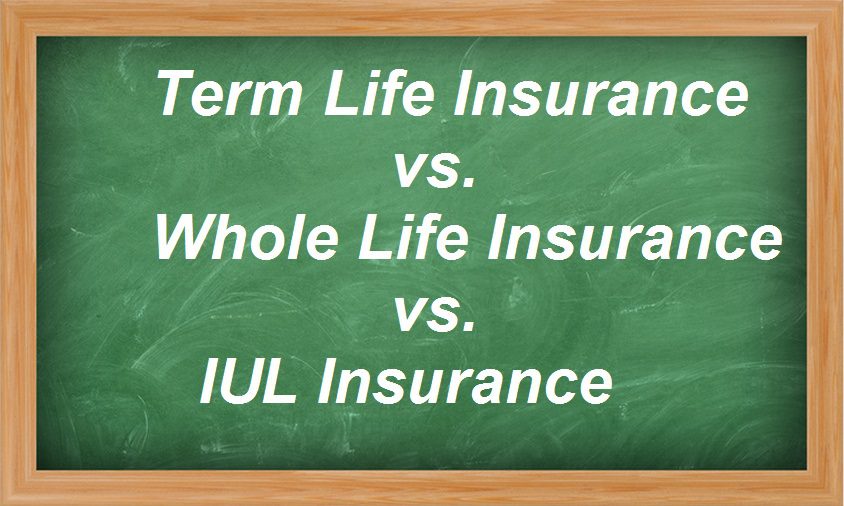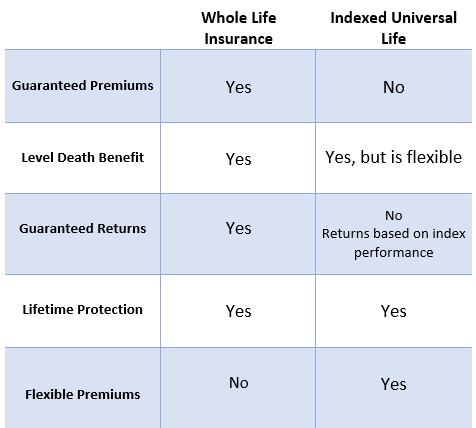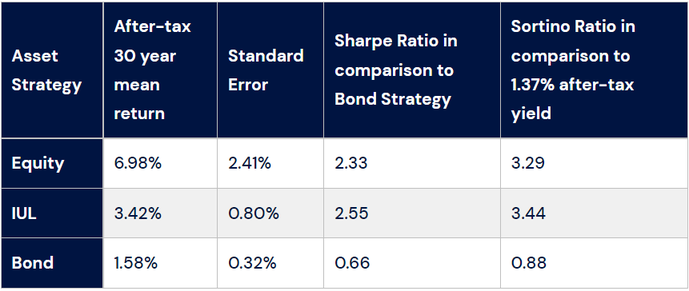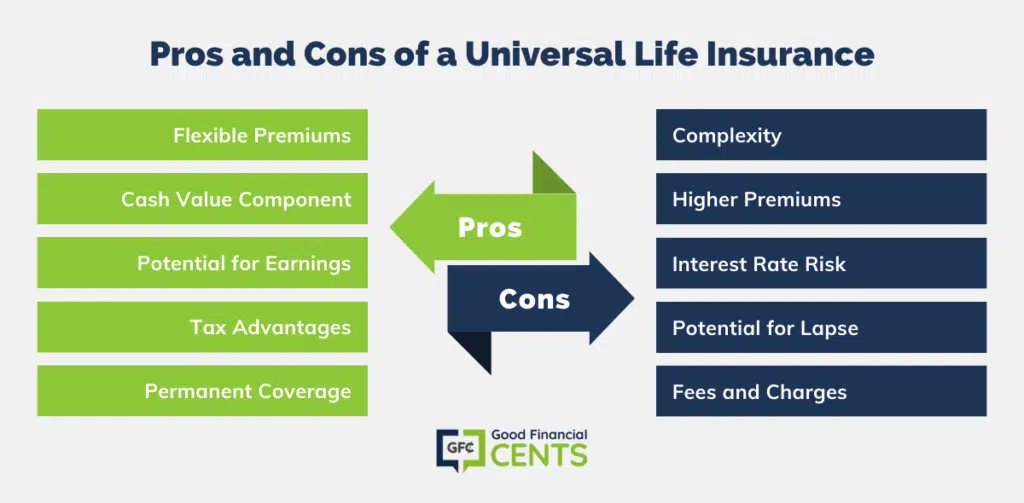All Categories
Featured
Table of Contents
1), often in an effort to defeat their classification averages. This is a straw man disagreement, and one IUL people love to make. Do they compare the IUL to something like the Vanguard Total Amount Stock Market Fund Admiral Show to no load, an expenditure ratio (EMERGENCY ROOM) of 5 basis points, a turn over ratio of 4.3%, and an exceptional tax-efficient document of distributions? No, they compare it to some awful proactively handled fund with an 8% tons, a 2% EMERGENCY ROOM, an 80% turn over ratio, and a dreadful record of short-term resources gain distributions.
Shared funds often make yearly taxable distributions to fund owners, even when the worth of their fund has actually dropped in value. Common funds not just call for income coverage (and the resulting annual tax) when the mutual fund is rising in value, but can also enforce earnings taxes in a year when the fund has actually dropped in worth.
That's not how common funds function. You can tax-manage the fund, gathering losses and gains in order to minimize taxed circulations to the financiers, yet that isn't in some way going to alter the reported return of the fund. Only Bernie Madoff types can do that. IULs stay clear of myriad tax traps. The ownership of shared funds may need the common fund owner to pay approximated tax obligations.

IULs are easy to position so that, at the owner's fatality, the recipient is exempt to either revenue or inheritance tax. The exact same tax decrease techniques do not work nearly too with common funds. There are numerous, often costly, tax obligation catches linked with the moment trading of common fund shares, catches that do not relate to indexed life insurance policy.
Chances aren't extremely high that you're going to go through the AMT due to your common fund circulations if you aren't without them. The rest of this one is half-truths at best. As an example, while it holds true that there is no earnings tax obligation as a result of your beneficiaries when they acquire the profits of your IUL plan, it is additionally real that there is no income tax obligation due to your successors when they inherit a mutual fund in a taxed account from you.
Iul Master
The federal estate tax obligation exemption limitation is over $10 Million for a pair, and growing each year with inflation. It's a non-issue for the large majority of doctors, a lot less the rest of America. There are far better means to avoid inheritance tax concerns than getting investments with low returns. Shared funds might trigger income taxation of Social Safety benefits.

The development within the IUL is tax-deferred and might be taken as free of tax income through car loans. The policy proprietor (vs. the shared fund supervisor) is in control of his or her reportable revenue, thus allowing them to lower or also get rid of the taxes of their Social Safety benefits. This set is fantastic.
Below's one more marginal issue. It's true if you purchase a shared fund for state $10 per share prior to the circulation day, and it distributes a $0.50 distribution, you are after that going to owe taxes (probably 7-10 cents per share) although that you haven't yet had any type of gains.
However in the long run, it's truly regarding the after-tax return, not just how much you pay in tax obligations. You are going to pay even more in tax obligations by utilizing a taxable account than if you purchase life insurance coverage. You're also possibly going to have more money after paying those taxes. The record-keeping requirements for possessing mutual funds are substantially more complicated.
With an IUL, one's records are kept by the insurer, duplicates of yearly statements are mailed to the owner, and circulations (if any) are totaled and reported at year end. This is likewise sort of silly. Of course you should keep your tax records in case of an audit.
Irl Insurance
All you need to do is push the paper into your tax folder when it turns up in the mail. Hardly a factor to purchase life insurance policy. It resembles this man has actually never purchased a taxable account or something. Common funds are commonly part of a decedent's probated estate.
On top of that, they are subject to the hold-ups and expenses of probate. The proceeds of the IUL plan, on the other hand, is always a non-probate distribution that passes outside of probate straight to one's called recipients, and is as a result not subject to one's posthumous financial institutions, unwanted public disclosure, or comparable hold-ups and expenses.
We covered this under # 7, yet simply to recap, if you have a taxed shared fund account, you must put it in a revocable depend on (or also easier, use the Transfer on Fatality designation) to avoid probate. Medicaid incompetency and life time earnings. An IUL can provide their proprietors with a stream of income for their whole lifetime, regardless of for how long they live.

This is beneficial when organizing one's events, and transforming properties to earnings prior to a nursing home arrest. Mutual funds can not be transformed in a comparable manner, and are generally thought about countable Medicaid assets. This is one more silly one supporting that inadequate people (you know, the ones that need Medicaid, a federal government program for the bad, to spend for their assisted living facility) must utilize IUL as opposed to mutual funds.
Iul Master
And life insurance policy looks awful when compared rather against a retirement account. Second, individuals who have money to buy IUL above and beyond their pension are going to have to be dreadful at managing money in order to ever before receive Medicaid to pay for their retirement home prices.
Persistent and terminal illness biker. All plans will certainly enable a proprietor's very easy access to cash money from their plan, often forgoing any type of surrender penalties when such individuals experience a severe disease, need at-home care, or become constrained to a retirement home. Shared funds do not give a similar waiver when contingent deferred sales costs still put on a mutual fund account whose proprietor requires to sell some shares to fund the prices of such a stay.
What Is Universal Life Insurance Vs Term
You obtain to pay more for that advantage (biker) with an insurance coverage plan. Indexed global life insurance gives death advantages to the recipients of the IUL proprietors, and neither the proprietor neither the beneficiary can ever shed money due to a down market.
I definitely don't need one after I reach financial self-reliance. Do I want one? On average, a buyer of life insurance coverage pays for the true expense of the life insurance coverage benefit, plus the prices of the plan, plus the revenues of the insurance firm.
Universal Life Insurance Cost
I'm not totally sure why Mr. Morais included the entire "you can't lose cash" once more right here as it was covered quite well in # 1. He simply wished to repeat the most effective marketing point for these points I expect. Again, you don't shed small bucks, but you can shed actual dollars, along with face serious chance cost because of low returns.

An indexed universal life insurance policy policy proprietor might trade their policy for a totally various plan without activating revenue taxes. A shared fund proprietor can not relocate funds from one shared fund firm to an additional without selling his shares at the previous (therefore causing a taxed occasion), and repurchasing new shares at the last, usually based on sales charges at both.
While it holds true that you can trade one insurance coverage plan for an additional, the reason that individuals do this is that the first one is such an awful plan that even after buying a new one and experiencing the very early, unfavorable return years, you'll still come out in advance. If they were offered the ideal plan the first time, they shouldn't have any type of wish to ever exchange it and undergo the early, negative return years once more.
Latest Posts
Universal Index Life Insurance Pros And Cons
Adjustable Life Insurance Vs Universal Life Insurance
Universal Premium Acceptance Corporation